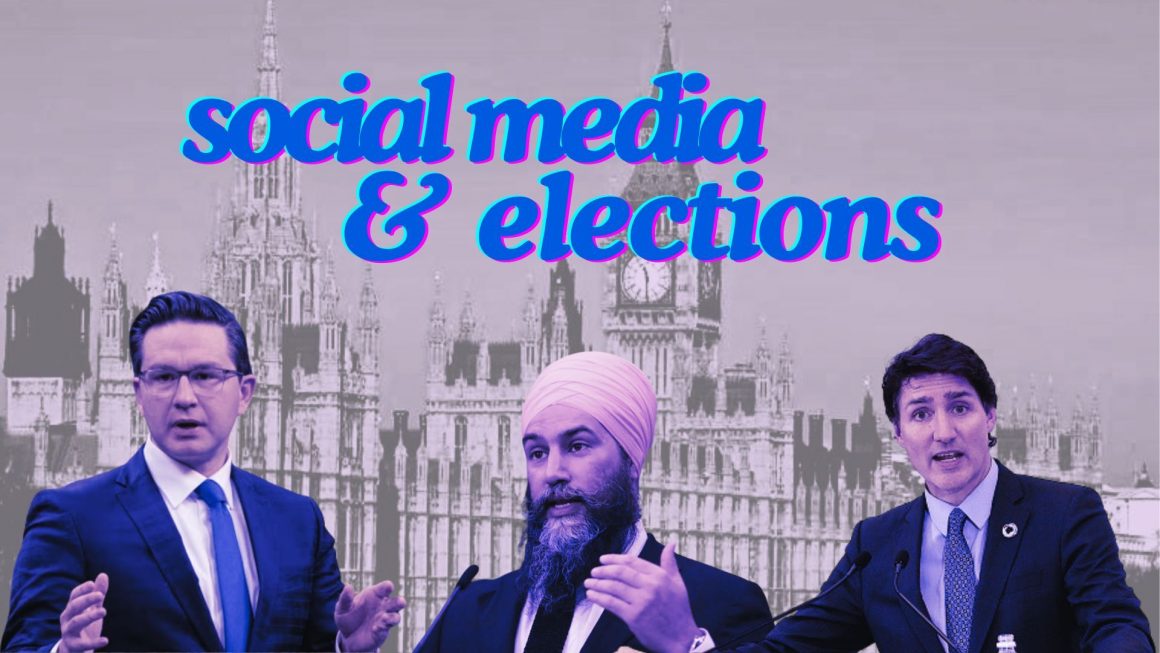
Early election fever: the changing tactics of Canadian political campaigns
By Radhya Comar, July 27 2024—
Early campaigning, aggressive social media strategies and massive budgets are the norm in American political candidates. The United States is known for its especially long election cycle. Canada, however, is not. That might be changing.
After three consecutive wins for the Liberal Party of Canada, the Official Opposition is growing restless. The Conservative Party of Canada has faced internal struggles surrounding party leadership, with three different leaders officially taking on the role since 2020. However, the torch now seems to have settled comfortably in the hands of Pierre Poilievre.
A clever and charismatic Calgary native, Poilievre has served as the party’s leader since 2022. His onslaught of witty slogans criticizing Justin Trudeau has seemingly united the factions of his party — both the more progressive section and the so-called true-blue conservatives who oppose measures such as vaccine mandates and the carbon tax.
Taglines such as “Justinflation” and “Ax the Tax” have done more than just win Poilievre online approval. The ferocity and frequency of Poilievre’s quips have created a more contentious atmosphere in Canadian politics, one that is usually only observed near election time.
A quick glance through Poilievre’s Instagram shows a variety of posts including everything from pictures of him to snippets of speeches he has made. These short reels criticize various aspects of the liberal government, from their foreign policy to proposed legislation. Yet, they bolster Poilievre more than they insult Trudeau. They allow Poilievre to portray himself as a well-spoken, powerful orator. Poilievre’s frequent reposting of newspaper headlines, on the other hand, is less subtle. A casual perusal through the opposition leader’s instagram shows that these stories usually report on crime or cost of living related struggles and reposted regularly. They are also accompanied by captions telling voters that this is what life is like after 9 years of a Trudeau-led government. Many of these headlines revolved around acts that were singular, one-off incidents or that fell under provincial jurisdiction. Nonetheless, they aid Poilievre fear-monger the public into hopefully electing a Conservative government in 2025.
Concurrently, Trudeau’s social media strategy remains focused on portraying him as a warm and sociable statesman. He is constantly pictured shaking hands with or smiling alongside his voters. This allows Trudeau to portray himself as personable and calm, a friendlier alternative to the ‘aggressive’ Poilievre. Trudeau’s posts also target specific voter blocs. Additionally, he rarely misses posting about an ethnic cultural events. From Vaisakhi to Lunar New Year, highlighting his party’s multiculturalism is a major focus of Trudeau’s social media.
This phenomenon has been observed by politicians and immigrant communities alike. Recently, Trudeau has also been pictured repeating the same formula with The Pope, the Greek diaspora, and Jewish communities. However, these instances of pandering to different voter blocs may only be a topical solution. They only illustrate Trudeau’s personability as an individual. Meanwhile, Polievre is attacking the whole of the Liberal government and their policies.
Jagmeet Singh’s social media strategy seems to combine both sides. Major themes throughout Singh’s social media posts are the ongoing cost of living and rampant corporate greed. Overall, his attacks are more subtle. They are not directed at Trudeau as much as grocery store CEOs. Thus, he combines Trudeau’s friendly politics with Poilievre’s calls for change. These posts continually emphasize Singh’s willingness to confront politicians and CEOs as if to say that he is willing to stand up for the people because he cares, not to settle political scores between parties. There could also be another reason behind the constant reposting of his own tweets. The NDP have never won a federal election. While their policies broaden the political spectrum and bolster Canada’s democracy, they remain a tertiary party. Plugging his other social media accounts increases engagement for Singh.
As each party leader pursues their distinct social media strategies, it is too early to tell which ones will be successful and which ones will not. Still, these early displays may be representative of their long-term strategies for the next federal election. Moreover, they display the increasingly contentious nature of Canadian politics.
This article is a part of our Opinions section and does not necessarily reflect the views of the Gauntlet editorial board.
